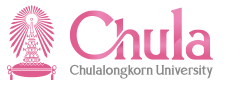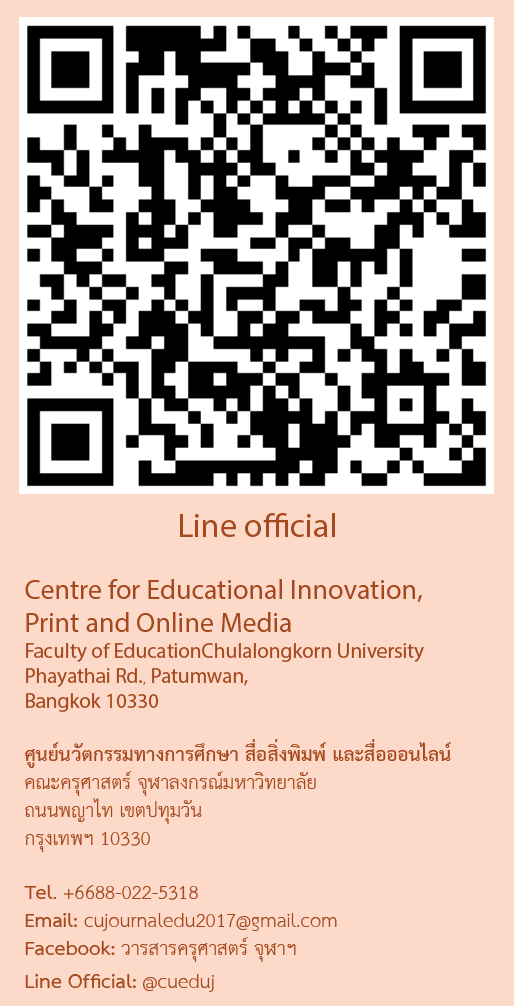Abstract
การวิจัยครั้งนี้มีวัตถุประสงค์เพื่อวิเคราะห์สภาพและความต้องการในการพัฒนาทักษะชีวิตที่จำเป็นสำหรับเด็กด้อยโอกาสและการยอมรับเป็นสมาชิกของสังคม และเพื่อวิเคราะห์ทักษะชีวิตที่จำเป็นสำหรับเด็กด้อยโอกาสในการจัดการศึกษาเพื่อเสริมสร้างการยอมรับเป็นสมาชิกของสังคม โดยการเก็บรวบรวมข้อมูลด้วยแบบสอบถามกับกลุ่มตัวอย่าง 2 กลุ่ม จำนวน 2,046 คน ในพื้นที่ 3 จังหวัดกระจายอยู่ตามภูมิภาคต่าง ๆประกอบด้วยกลุ่มที่ 1 เป็นเด็กด้อยโอกาสประเภทยากจนที่อาศัยอยู่ในบริบทสังคมเมืองที่มีความเสี่ยงและครู กลุ่มที่ 2 เป็นเด็กปกติทั่วไปที่มีพื้นฐานและบริบทสังคมใกล้เคียงกัน จำนวนทั้งหมด 2,046 คน และการวิจัยเชิงคุณภาพด้วยการสัมภาษณ์เชิงลึก ผู้บริหาร นักวิชาการ ผู้ปกครองและเด็กด้อยโอกาสที่ประสบความสำเร็จ จำนวน 13 คน วิเคราะห์มูลด้วยการหาค่าเฉลี่ย ส่วนเบี่ยงเบนมาตรฐาน ค่าที (t) การวิเคราะห์ถดถอยพหุคูณและการหาค่า PNImodified
ผลการวิจัยพบว่า เด็กด้อยโอกาสได้รับการยอมรับเป็นสมาชิกของสังคมในระดับปานกลางค่อนข้างตํ่ากว่าเด็กทั่วไป รวมทั้งมีระดับทักษะชีวิตอยู่ในระดับปานกลางค่อนข้างตํ่าเช่นเดียวกับเด็กทั่วไปและแตกต่างกันอย่างไม่มีนัยสำคัญทางสถิติของทั้งสองกลุ่ม ในภาพรวมเด็กทั่วไปถูกคาดหวังให้มีทักษะชีวิตที่สูงกว่าเด็กด้อยโอกาส ซึ่งความคาดหวัดการมีทักษะชีวิตของทั้งสองกลุ่มมีความแตกต่างกันอย่างมีนัยสำคัญทางสถิติ โดยมีค่าที (t) เท่ากับ 2.50 ที่ระดับนัยสำคัญทางสถิติ .05 สำหรับทักษะชีวิตที่จำเป็นของเด็กด้อยโอกาสที่ควรได้รับการพัฒนาในการจัดการศึกษาเพื่อเสริมสร้างการยอมรับเป็นสมาชิกของสังคม มีจำนวน 8 ทักษะ ประกอบด้วย 1) ทักษะการคิดอย่างมีวิจารณญาณ 2) ทักษะการคิดสร้างสรรค์ 3) ทักษะการแก้ปัญหา 4) ทักษะการสื่อสารอย่างมีประสิทธิภาพ 5) ทักษะการตัดสินใจ 6) ทักษะการตระหนักรู้ในตน 7) ทักษะการจัดการกับอารมณ์ และ 8) ทักษะการสร้างสัมพันธภาพระหว่างบุคคล
Publisher
Faculty of Education, Chulalongkorn University
DOI
10.58837/CHULA.EDUCU.47.4.19
First Page
346
Last Page
365
Recommended Citation
คำอ้ายกาวิน, ภูริวรรษ and หงษ์วิทยากร, อุบลวรรณ
(2019)
"การวิเคราะห์ทักษะชีวิตที่จำเป็นของเด็กด้อยโอกาสสำหรับการจัดการศึกษาเพื่อเสริมสร้างการยอมรับเป็นสมาชิกของสังคม,"
Journal of Education Studies: Vol. 47:
Iss.
4, Article 19.
DOI: 10.58837/CHULA.EDUCU.47.4.19
Available at:
https://digital.car.chula.ac.th/educujournal/vol47/iss4/19


